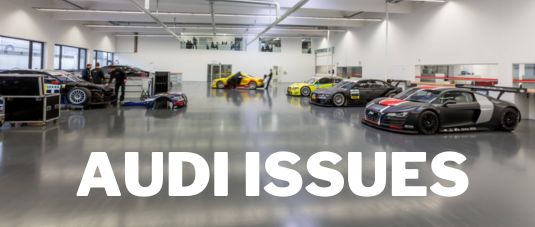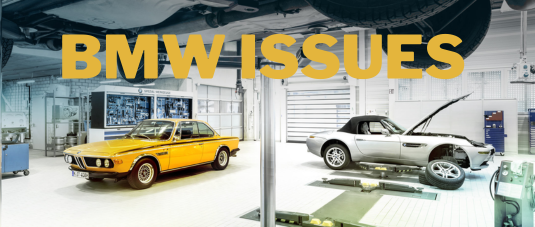Preparing Your Car for Summer


A Comprehensive Guide to Preparing Your Car for Summer After the Winter Season
As the winter season fades away and warmer temperatures approach, it's essential to ensure that your car is ready to tackle the challenges of summer driving. From routine maintenance checks to addressing any issues that may have arisen during the colder months, preparing your vehicle for summer can help enhance its performance, reliability, and overall safety. In this guide, we'll walk you through the essential steps to get your car ready for summer after the winter season, covering popular brands such as Porsche, Volkswagen Audi Group (VAG), BMW, and Mercedes-Benz.
1. Check Fluid Levels and Condition:
Start by inspecting the fluid levels in your vehicle, including engine oil, coolant, brake fluid, and windshield washer fluid. Ensure that all fluids are at the appropriate levels and free from contamination. Replace any fluids that appear dirty or degraded, as fresh fluids are crucial for optimal performance, especially during the warmer months.
2. Inspect the Cooling System:
The cooling system plays a vital role in regulating engine temperature, particularly in hot weather conditions. Inspect the radiator, hoses, and coolant reservoir for any signs of leaks, corrosion, or damage. Check the condition of the coolant and replace it if necessary. Additionally, ensure that the radiator fan is functioning correctly to prevent overheating.
3. Test the Air Conditioning System:
Before the summer heat sets in, test the functionality of your car's air conditioning system. Turn on the AC and verify that cold air is blowing consistently from the vents. If the air feels weak or warm, it may indicate issues with the compressor, refrigerant levels, or ventilation system. Schedule a professional inspection and servicing if needed to ensure optimal cooling performance.
4. Inspect the Tires:
Check the condition and tread depth of your tires to ensure they're suitable for summer driving. Look for signs of uneven wear, bulges, or cracks, and measure the tread depth using a tread depth gauge. Rotate the tires if necessary and ensure they're inflated to the manufacturer's recommended pressure. Consider switching to summer tires for improved traction and performance in warm weather conditions.
5. Test the Battery:
Cold temperatures can take a toll on car batteries, reducing their performance and lifespan. Test the battery's voltage and inspect the terminals for corrosion or buildup. Clean the terminals and connections if needed and ensure a secure fit. If the battery is weak or nearing the end of its lifespan, consider replacing it to avoid unexpected breakdowns during summer driving.
6. Check the Brakes:
Brakes are critical for safety year-round, but they may require special attention after the winter season. Inspect the brake pads, rotors, and brake fluid levels for signs of wear or deterioration. Squealing noises, vibrations, or reduced braking performance are indicators that the brakes may need servicing. Address any issues promptly to maintain reliable stopping power.
7. Perform a Comprehensive Inspection:
Schedule a comprehensive inspection of your vehicle's mechanical and electrical components to identify any underlying issues that may have developed over the winter. Pay attention to areas such as the suspension, steering, exhaust system, and lights. Addressing minor issues early can prevent them from escalating into more significant problems later on.
Popular Brand-Specific Considerations
Porsche:
For Porsche vehicles, consider inspecting the convertible top (if equipped) and ensuring proper operation before the summer driving season. Check the condition of the upholstery and interior trim, as prolonged exposure to sunlight can cause fading or deterioration.
Volkswagen Audi Group (VAG):
VAG vehicles, including Volkswagen and Audi models, may benefit from a thorough inspection of the turbocharger system, as turbocharged engines can be more susceptible to heat-related issues in the summer. Additionally, check for any recalls or technical service bulletins (TSBs) specific to your vehicle model.
BMW:
BMW owners should pay special attention to the condition of the air intake system and engine air filters, as clogged filters can restrict airflow and reduce engine performance. Inspect the exterior paint and apply a protective wax coating to shield against UV damage and maintain a glossy finish.
Mercedes-Benz:
Mercedes-Benz vehicles often feature advanced safety and driver assistance systems, so ensure that these systems are functioning correctly by performing a diagnostic scan and calibration if needed. Inspect the condition of the serpentine belt and tensioner to prevent belt failure, which can lead to engine damage.
Conclusion
Preparing your car for summer after the winter season is essential for maintaining its performance, reliability, and safety on the road. By following these essential steps and addressing brand-specific considerations for popular brands such as Porsche, VAG, BMW, and Mercedes-Benz, you can enjoy worry-free driving throughout the summer months. Remember to consult your vehicle's owner's manual and seek professional assistance if you encounter any issues during the inspection process. With proper care and maintenance, your car will be ready to tackle the adventures that summer driving brings.





